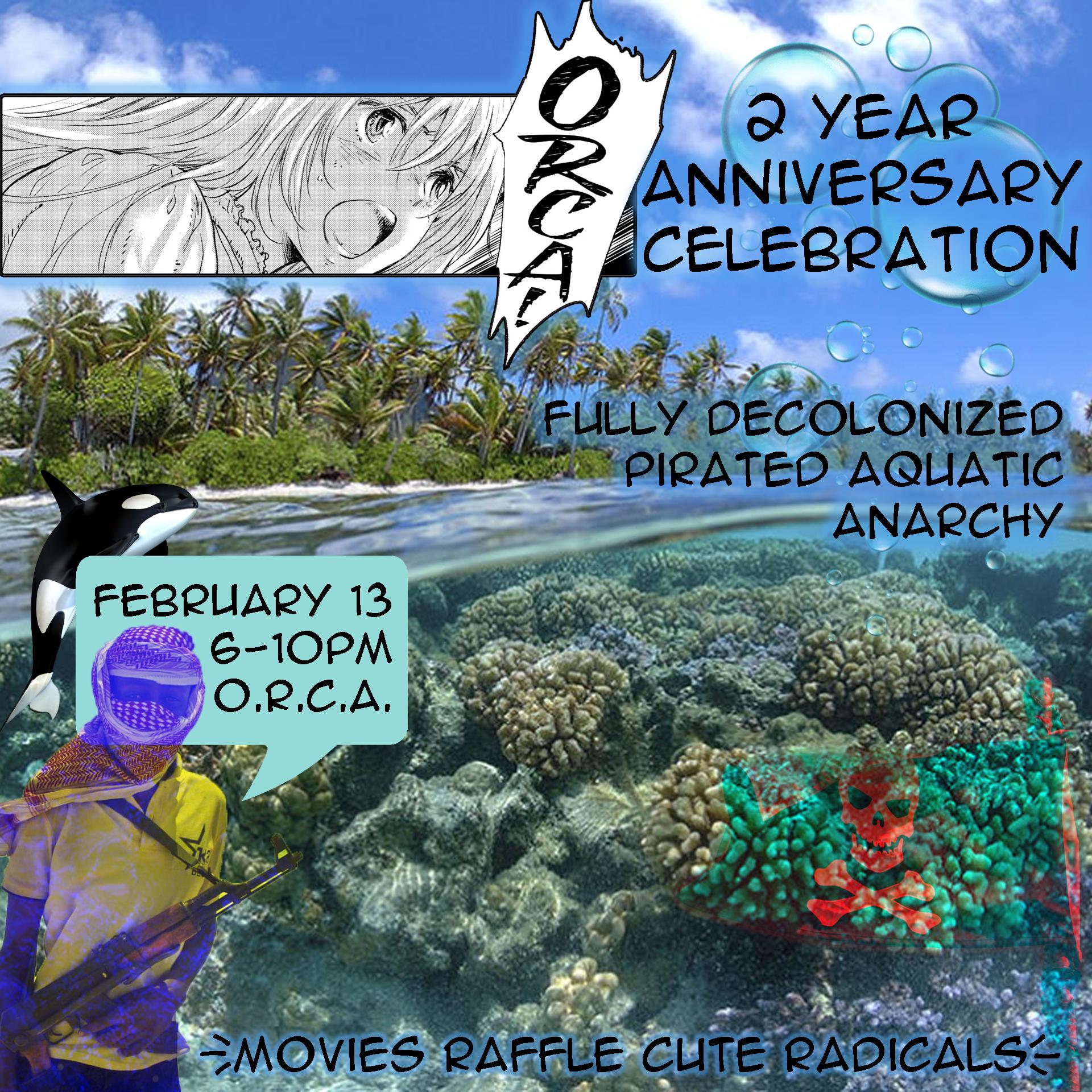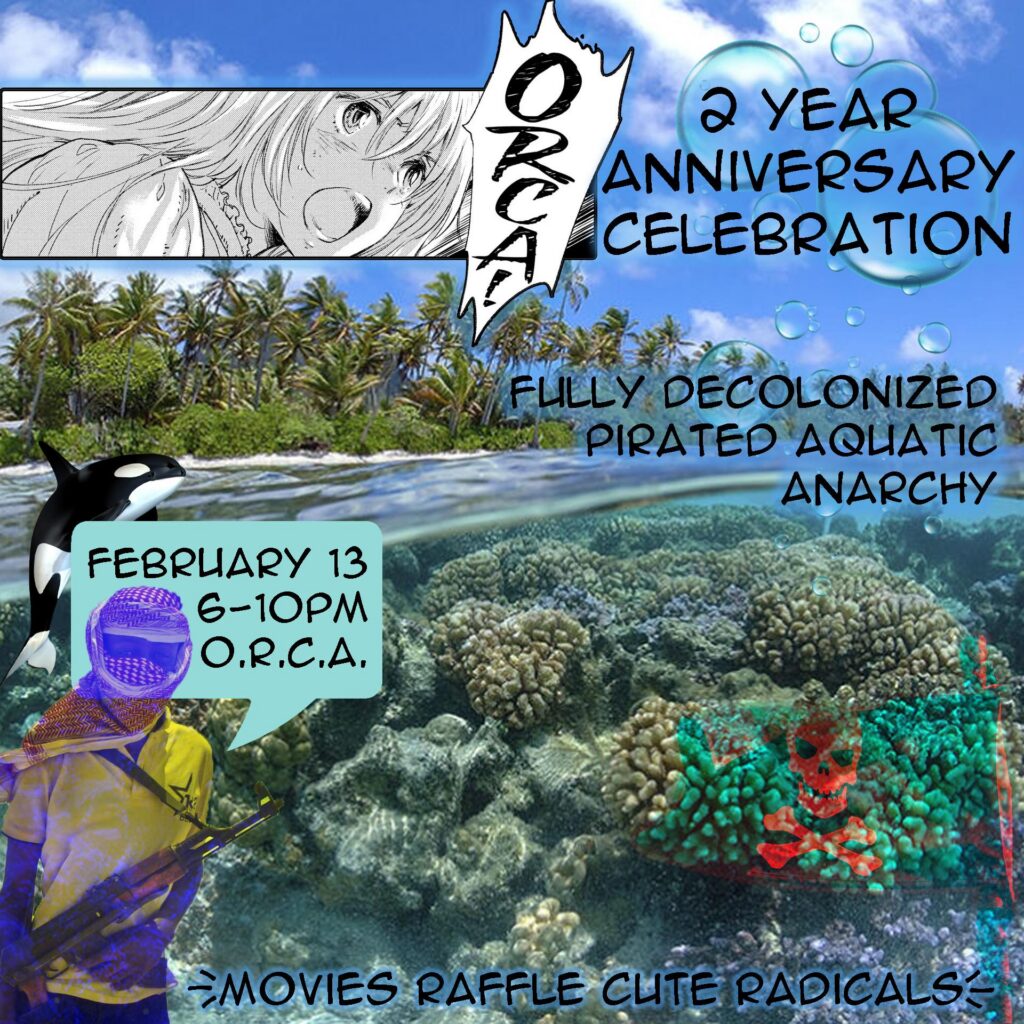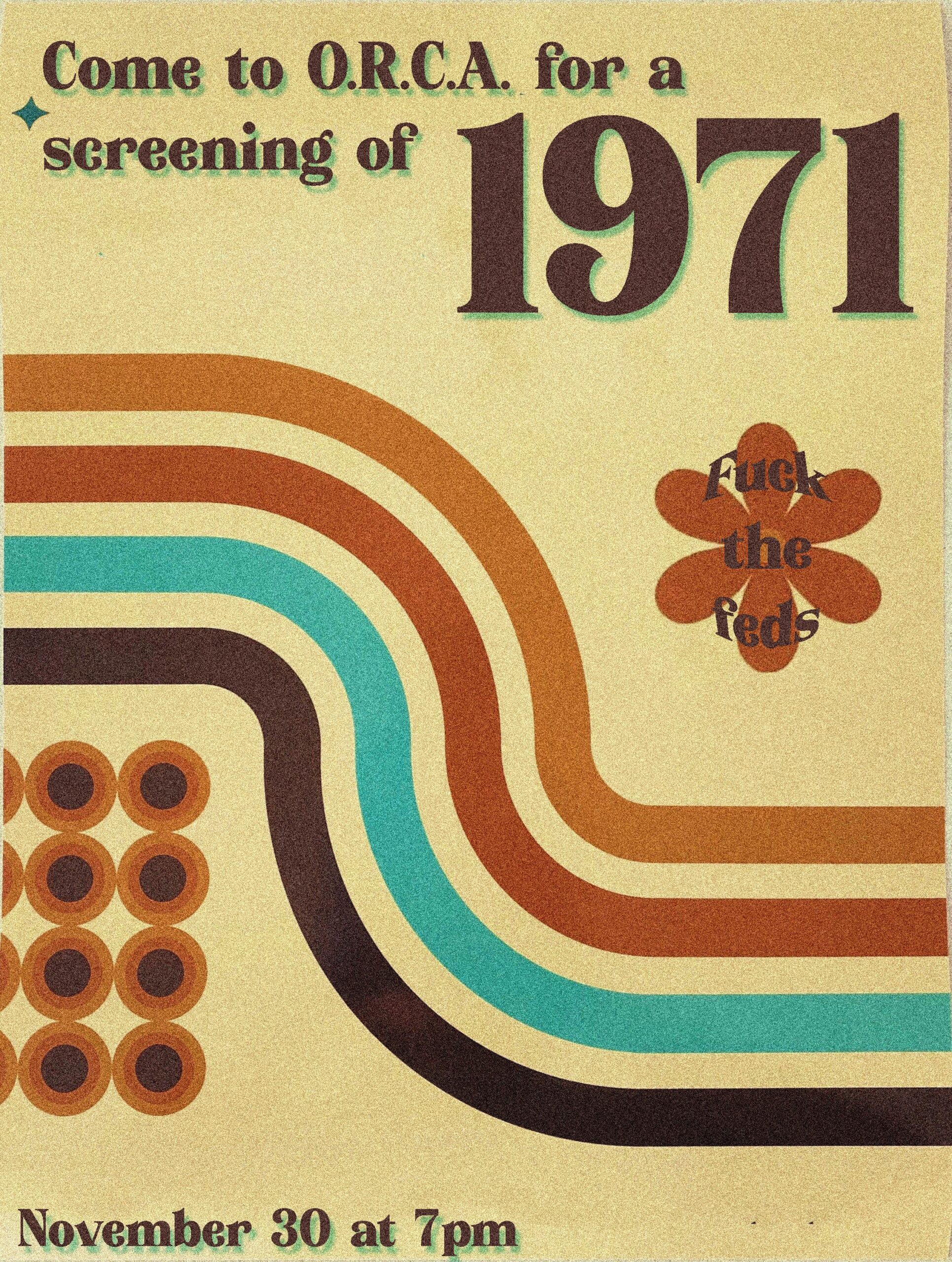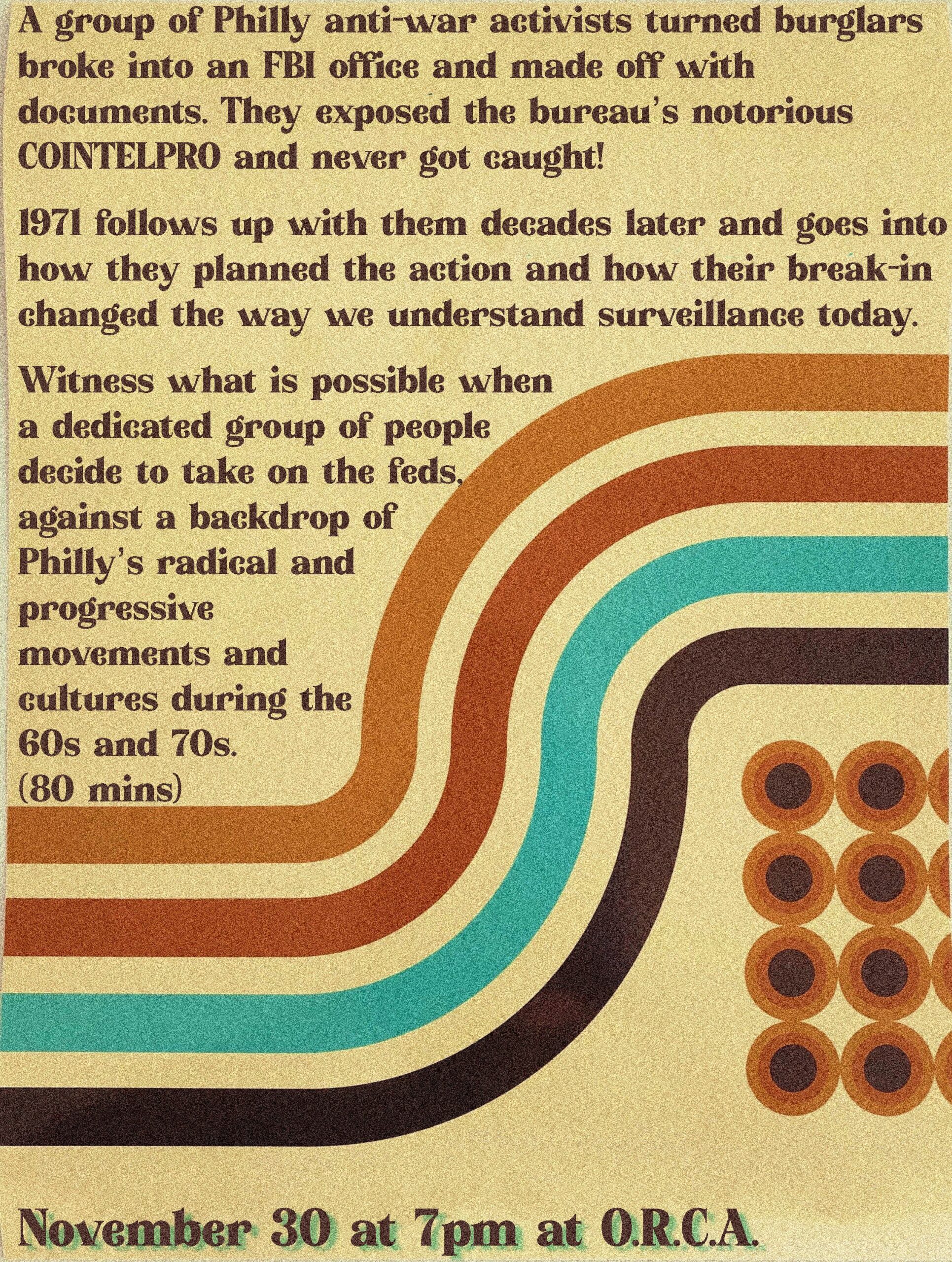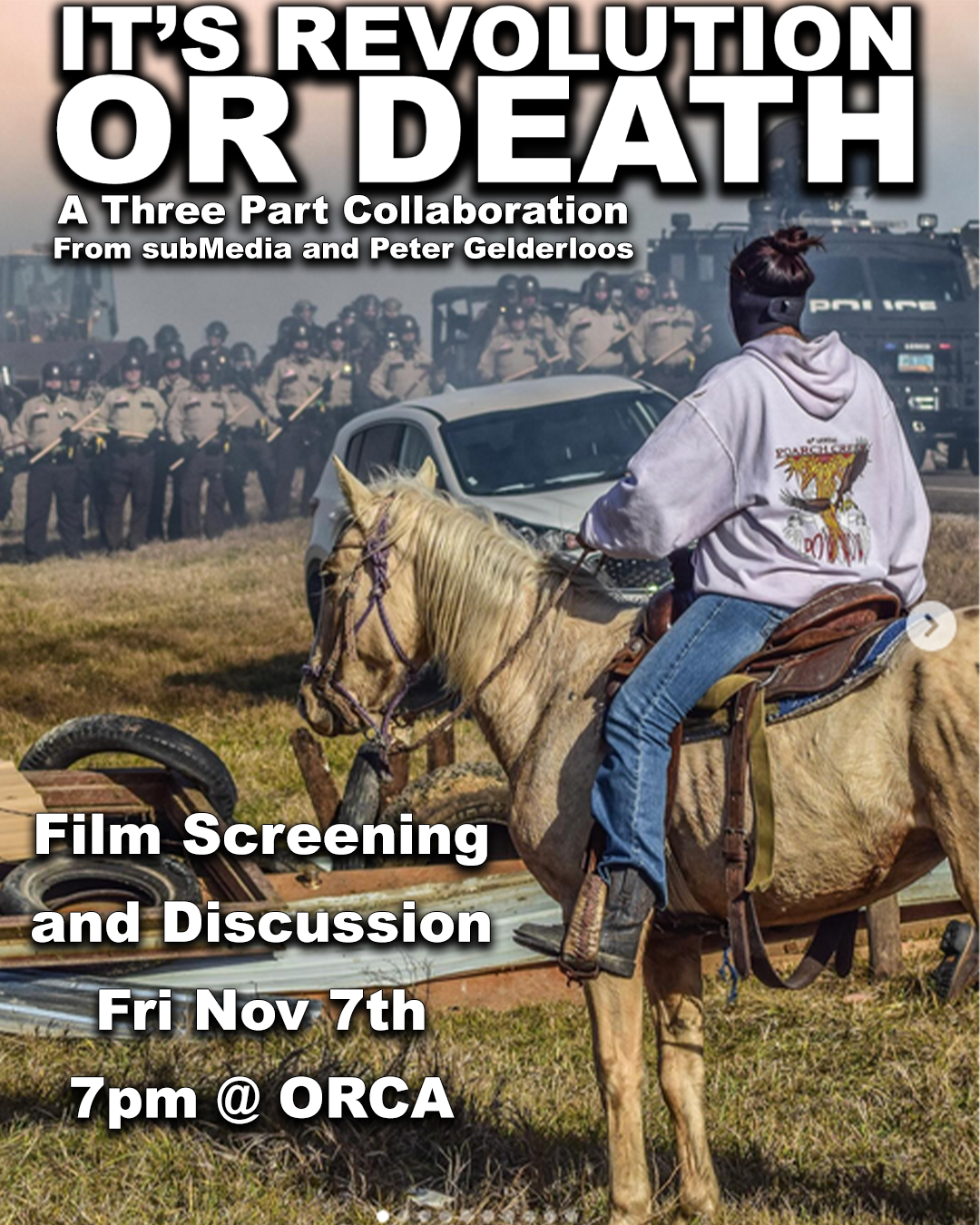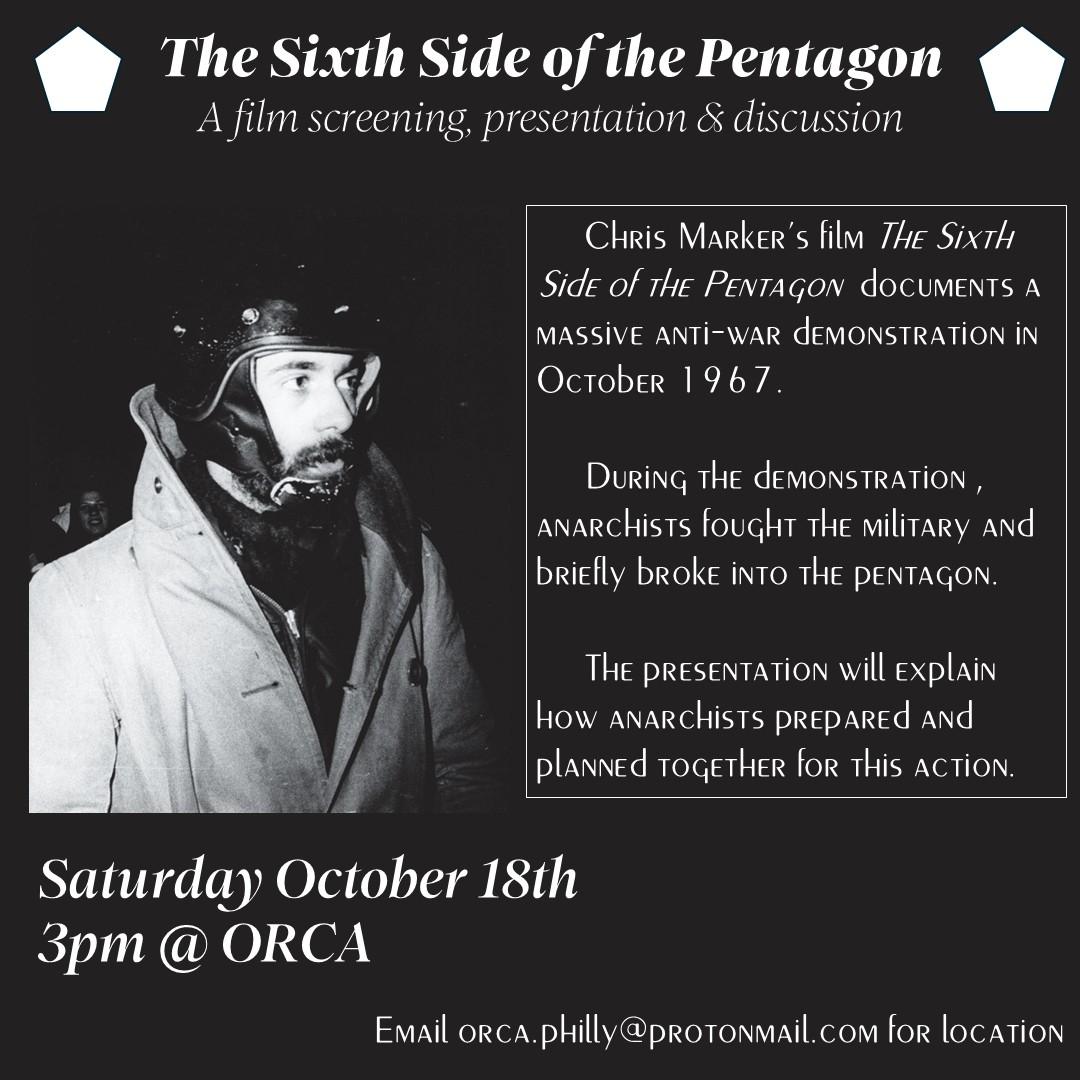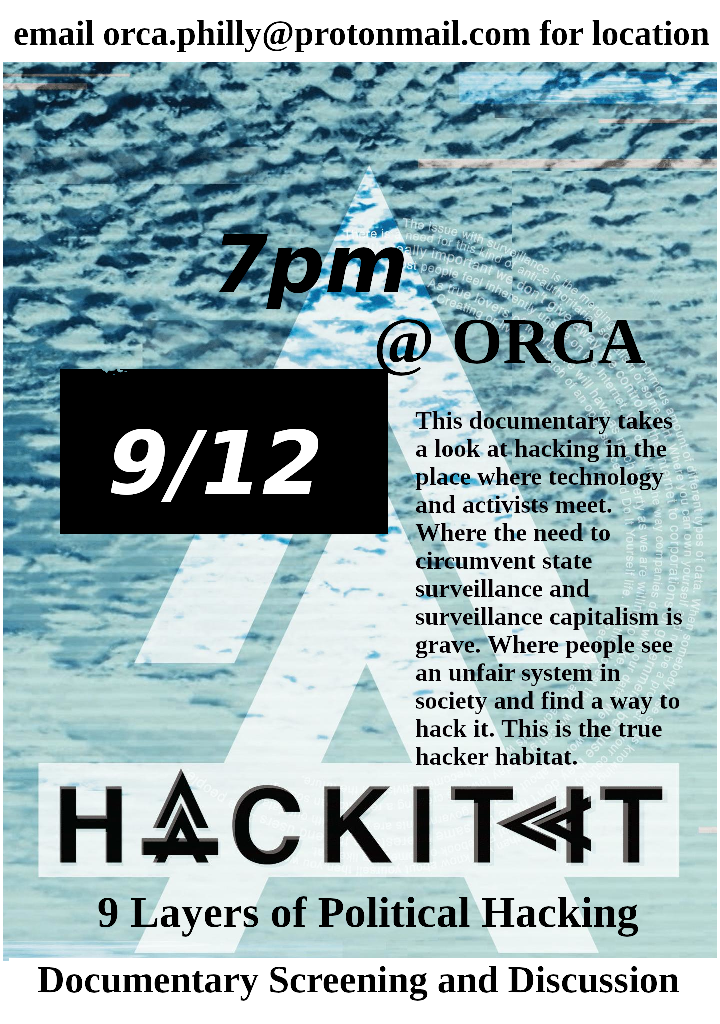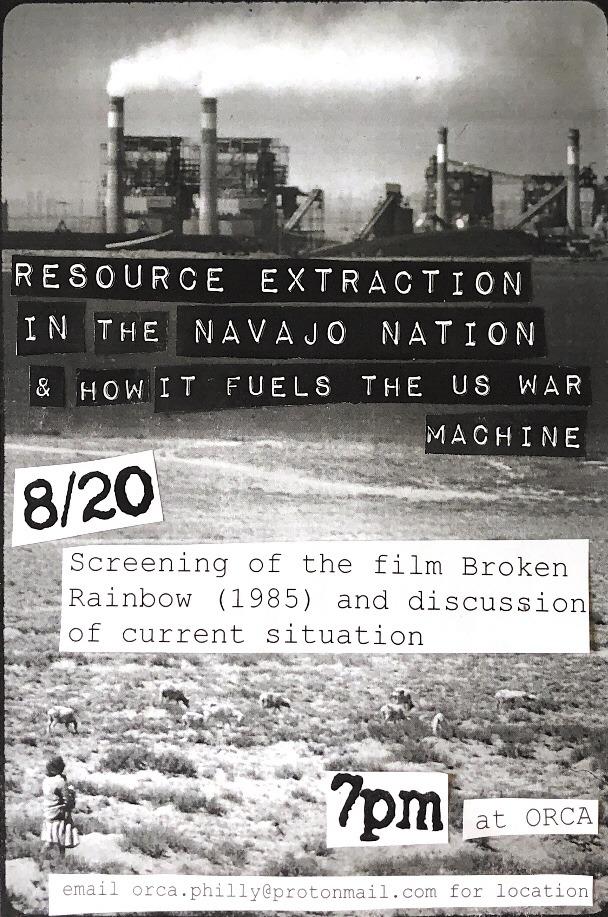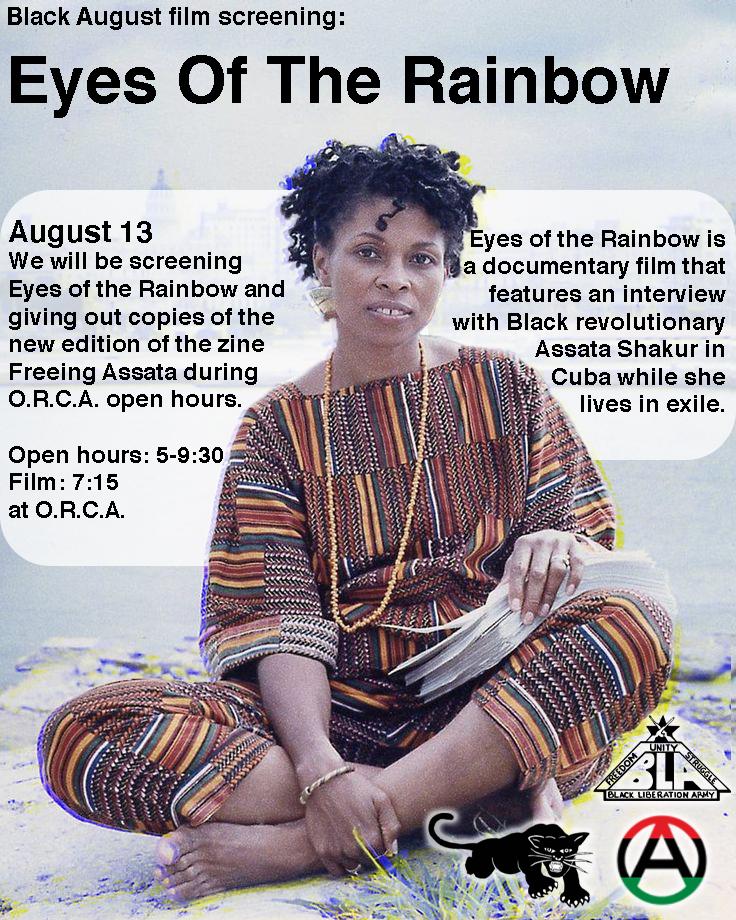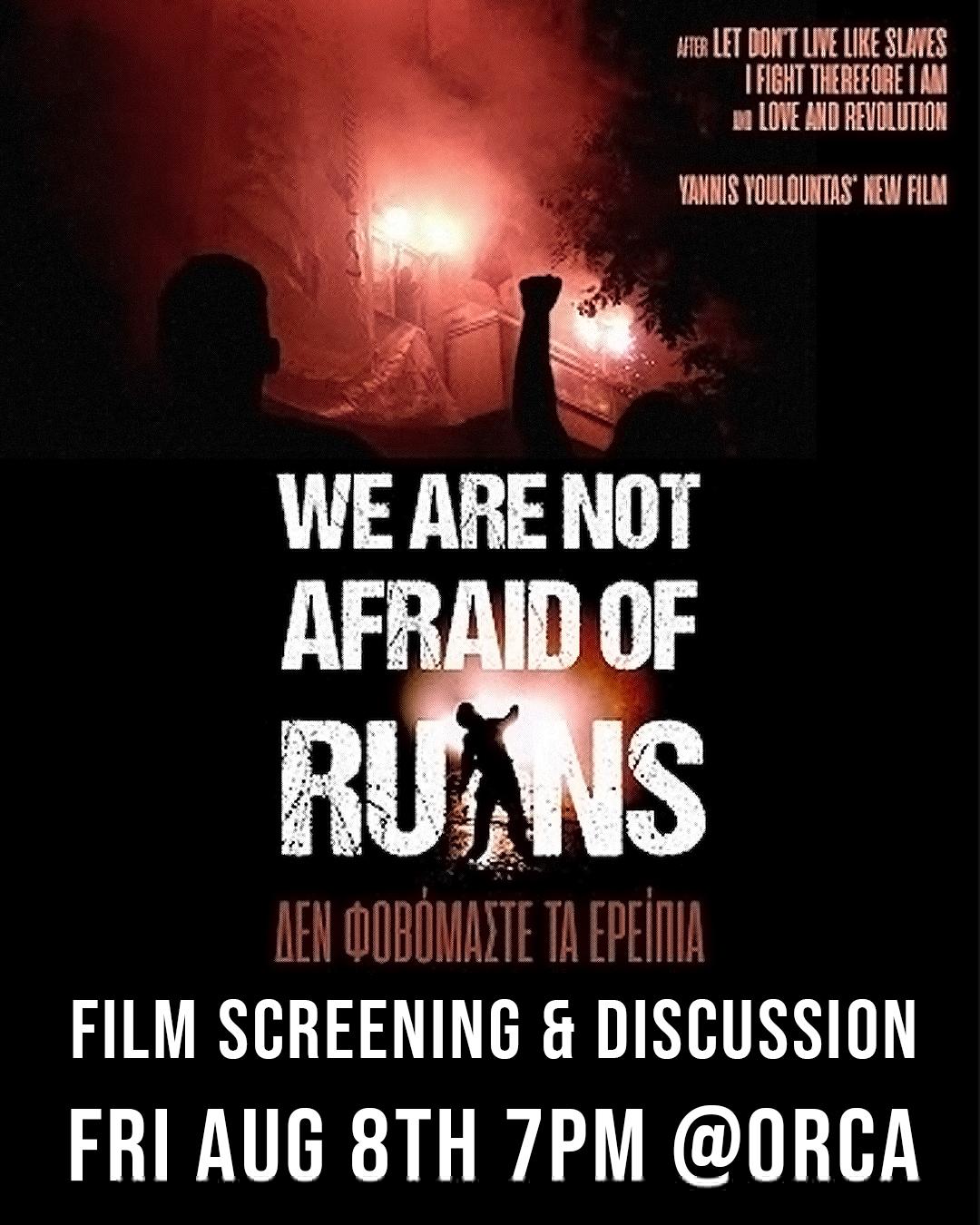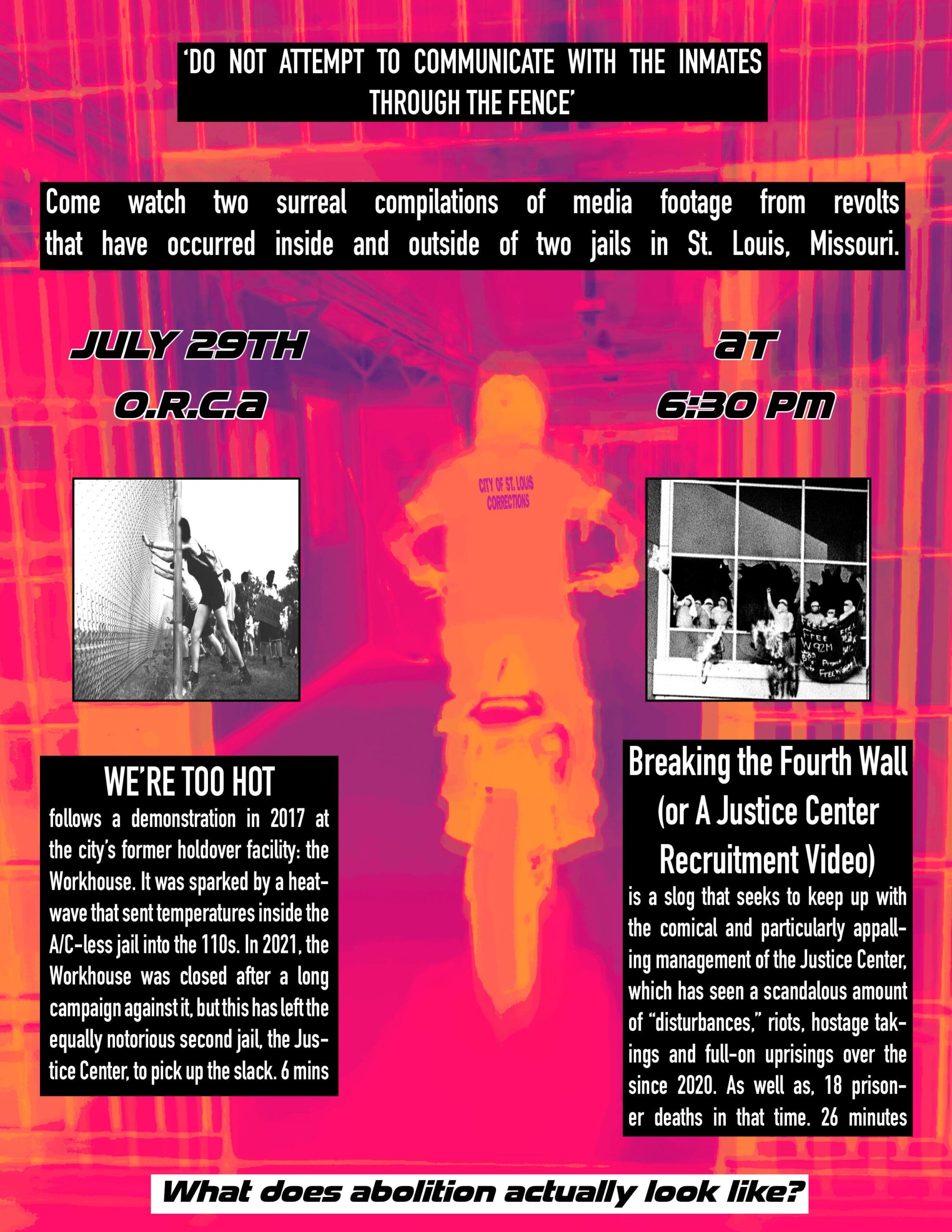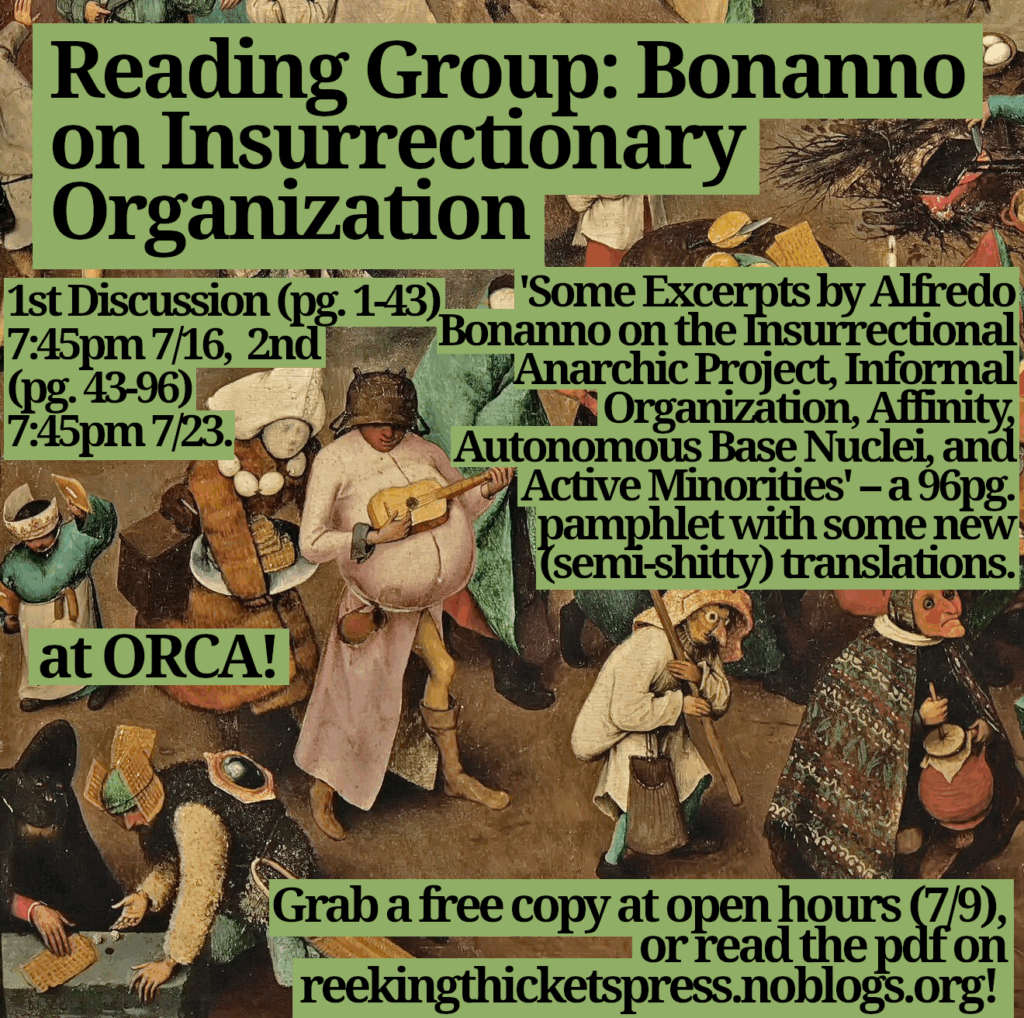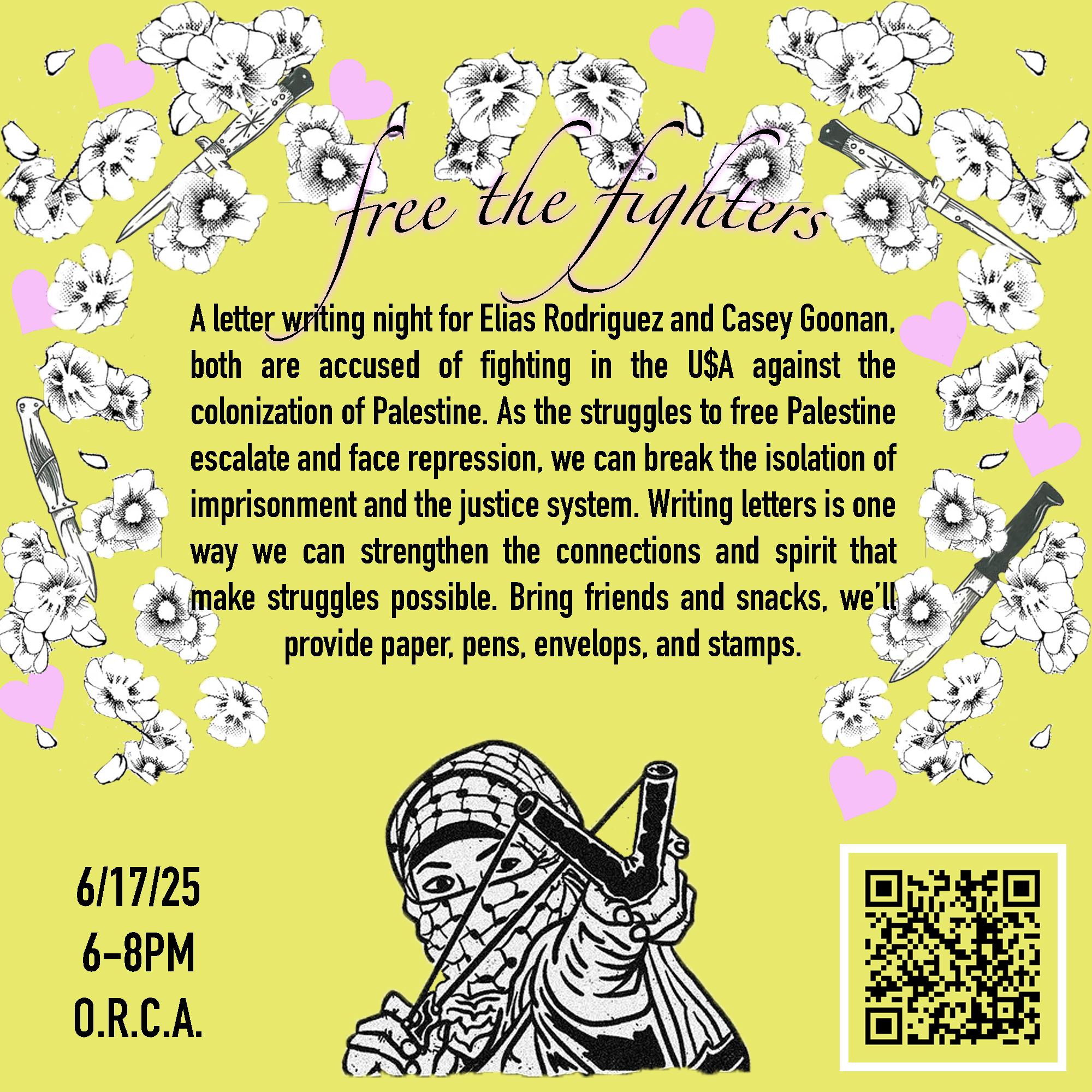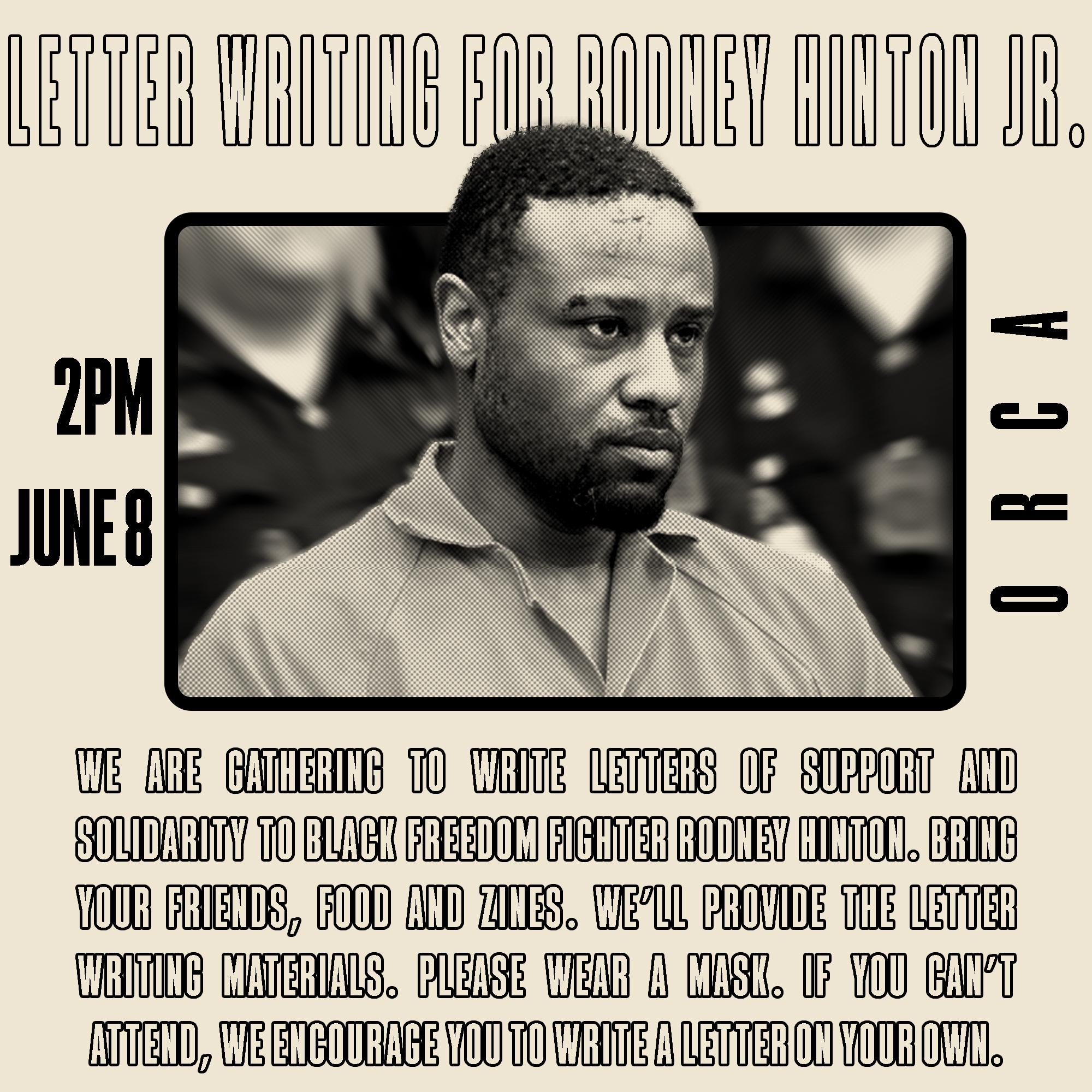Limited amount of physical copies available, come to ORCA Open Hours 7/9, 5-9:30pm for free pamphlets or email reekingthickets@proton.me to check availability and get copies at another time (free locally before 7/23, $3 after, plus shipping if not local)
Join us for two reading group discussions at ORCA (orcaphilly.noblogs.org/events/event/reading-group-bonanno-on-insurrectionary-organization/ – email ORCA at orca.philly@protonmail.com for address and accessibility info) where we’ll discuss the ideas in this newly compiled collection of writings by Alfredo Maria Bonanno in pamphlet form! Pick up a free physical copy of the reading at ORCA Open Hours on July 9th, 5-9:30pm (you can also print/read the pdf file included in this post), and come to a casual first discussion (covering pages 1-43), at ORCA Open Hours at 7:45pm July 16th, and a second discussion (pages 43-96) at ORCA Open Hours at 7:45pm July 23rd. Please do the reading beforehand (though you don’t have to participate in the reading group to come to open hours these days, and cross-talk is welcome), and if you’d like, feel free to bring any jotted-down questions or thoughts that come up.
This 96pg. collection of writings by Alfredo Bonanno (including some crude, new, provisional machine-translations with cursory manual corrections and added explanatory footnotes) aims to bring together some of his most concise, yet in-depth explanations of many of the core concepts of the specific strain of contemporary insurrectionary anarchism that he helped develop, which are often misunderstood or glossed over in jargon: projectuality, autonomous base nuclei (which include non-anarchists), affinity, informal organization, active/specific minorities (and their tools of counter-information, theory, intermediate struggles, and armed struggle), limited/specific struggles, the methodological trio of permanent conflictuality, self-management, and attack, and how these all relate to the mass process of insurrection. The particular value of this approach in the context of the real domination of post-industrial, technological society is also explored, as well as the relation between riot and insurrection, ideas of propaganda, linguistic and cultural alienation/estrangement/appropriation, destructive revolutionary consciousness oriented towards the unknown, and the significance of democratic, nationalist, authoritarian communist, synthesis or platform anarchist, shallowly spontaneist or individualist, unionist, and movementist tendencies.
We hope to evade some of the frequent snags that arise around current interpretations of Bonanno and contemporary insurrectionary anarchist theory, and feel that the material in this collection is far from another stale debate of the organizational question, and holds real, critical relevance from multiple angles for some contemporary impasses, transmitting, still, a powerfully fresh and possibilizing potential. Much will hopefully be at least somewhat new here for even those well-versed in current discussions, and, read alongside the anonymous classic At Daggers Drawn With the Existent, Its Defenders, and Its False Critics, and Armed Joy – also by Bonanno, we feel this collection can offer a very solid, well-rounded overview for readers unfamiliar with insurrectionary anarchist positions.
We do not intend to frame Alfredo Bonanno as some sort of mythical, revolutionary immortal with this collection, nor ourselves as any kind of privileged interpreter. It is not some detached intellectual fondness for decades-old European theoretical tracts passed through language barriers that leads us to feel these texts are relevant (though these ones do also please us to read). In fact, Bonanno’s rigorous criticism of this kind of ideological abstraction goes far further than many of his loyal, straight-talking critics who profess this angle. Both positive and negative appraisals of the insurrectionary anarchist proposals often suffer from a lack of genuine engagement with some of its primary theoretical elaborations, including with Bonanno’s work (though not only; our focus on him here doesn’t mean to repeat the frequent misconception that the many other, even less examined thinkers and currents historically involved are somehow irrelevant to the genesis of contemporary libertarian insurrectionary approaches). Part of this is a relative lack of translations, the tendency Bonanno had to sometimes present his complicated, often ambivalent (we mean this in a positive sense) ideas in simplified or indirect ways when not specifically explicating each referenced idea, the way that concise yet in-depth explanations of these core concepts are found somewhat scattered throughout his very prolific output (throughout which he wrote in numerous, divergent styles and tones), and his use of terms with specific contextual meanings. The over-reliance on secondary sources about his thought helps determine a situation where his positions are often presented in shallow terms, more relevant to the popular representation of his theoretical body of work than its actual content (all the more elusive for his fierce hostility to pre-determined dogma). Sometimes the criticism, largely baseless to us, alleges it’s too movementist and cautious, others find a concealed vanguardism, organizationalism, yet others that it’s too spontaneist, or spectacular, massified, isolated from the masses, militarist, classically socialist, insufficiently anti-civ, obsessively anti-acronym, etc.. Bonanno was himself drawn into polemics with critics or mistaken supporters revolving around these phantom positions, sometimes seeming to anticipate misreadings and frame his wording with these in mind (which an `opposite’ misunderstanding could find apparent confirmation in). The acknowledgement of this confusion, coupled with the implicit assertions of the contemporary invalidity of any conflictual premises shaped in the Italian Years of Lead, is itself a frequent excuse for watered-down, movementist readings, or to dismiss his positions a priori. In fact, we also live, in a different way, in bloody times, and the lack of a current Western analog for the Red Brigades (besides the vicarious would-be models of Palestinian authoritarian formations) could just as well argue for a reading less weighted towards emphasis of the pitfalls of armed struggle. In this situation and more generally, relevant insurrectionary analysis often appears split between very introductory treatments and highly elaborated, niche levels, subject to layers and layers of strongly diverging interpretation.
